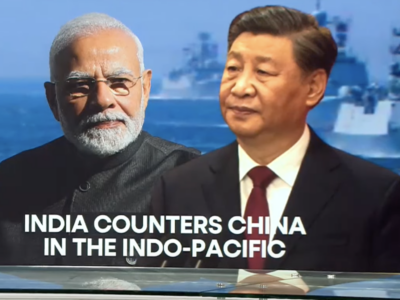As the Managing Editor for Global Voices, I explore new ways and technologies to tell stories grounded in local knowledge and aimed at a global audience. I first started in GV in 2015 as a writer and translator, when I was living in Beijing. Now I enjoy writing, editing, training, and launching new projects. I am also the Francophone Sub Editor for GV and work on Francophone Africa.
Having grown up in Tashkent and Odesa, and lived mostly in Central and Eastern Europe, the South Caucasus, Central Asia, the Himalayan region and East Asia, I write about those regions with a particular focus on identity and historical memory, minority groups, arts and culture, language, and less known cross-regional cultural influences. I often teach online about media and culture-related issues.
I have another passion: literary translation, and serve as Editor at Large for Central Asia at Asymptote Journal.
Finally, I recently launched with a friend a podcast on language diversity and power relations among languages, called The Vernacularists
I am currently and happily based in Taipei.
Latest posts by Filip Noubel
Deep historical links complicate Taiwan's relationship with Myanmar
To unpack a complex relationship between Myanmar and Taiwan, Global Voices interviewed Taiwan-based Will Yang, a seasoned Taiwanese journalist preparing a documentary movie on the two countries.
Global Voices call for stories about Ukraine
Global Voices is piloting a project of paid and commissioned stories about Ukraine by Ukrainians regardless of current location. Stories can be pitched and written in Ukrainian, English or Russian.
Navigating misconceptions and supporting Gaza from Taiwan
Global Voices interviewed Dr. Hazem Almassry, a Gazan scholar living in Taiwan, to unpack Taiwanese narratives about Palestine as well as changes in perceptions about Israel's war in Gaza.
Creating digital collage in Uzbekistan: Interview with artist Oyjon Khayrullaeva
Uzbekistan is known for its Silk Road architectural gems often presented in a traditional way. But young Uzbek artists are claiming this heritage in a new way to create striking art.
Chad as a literary territory: Interview with francophone novelist Nétonon Noël Ndjékéry
Chad is a pivot country between North and Central Africa. It is rarely covered as a place of literature, thus Global Voices interviewed francophone novelist Nétonon Noël Ndjékéry.
A snapshot of Taiwan's Sunflower movement ten years later
In 2014, Taiwan experienced an unprecedented youth protest, known as the Sunflower Movement, that altered local politics and relations with China. What is its legacy ten years later?
Despite escalating sanctions, key machines imported from East Asia sustain Russia’s war effort in Ukraine
Despite sanctions against Moscow in place as early as 2022, Asia remains a major source of key imports for Russia's war effort, including in the area of dual use machines.
Exiled Iranian crown prince awarded US LGBTQ+ award for speaking up for Iran's queer community
The Iranian LGBTQ+ community is kept invisible by the Iranian opposition, but a US LGBTQ+ award to exile Crown Prince Reza Pahlavi seems to signify changes in attitudes.
What can Taiwan learn from Ukraine? Interview with disinformation and civil defense expert Puma Shen
Can Taiwan learn from Ukraine as it faces military threats from China? Global Voices interviewed Puma Shen, a Taiwanese disinformation expert after his first visit to Ukraine in September.
One year after the Ürümqi fire that kicked off protests across China: Interview with Uyghur activist Rushan Abbas
Global Voices interviewed Uyghur activist Rushan Abbas to assess how the human rights situation of Uyghurs has changed since the Ürümqi fire and talk about the future of Uyghur-Han Chinese relations.
Undoing colonialism in gender diversity discourse in the Philippines
Colonized by Spain, the US, and Japan, the Philippines has a long history of discourses imposed on its own traditions, including the ones related to gender identity and fluidity.
Malagasy political crisis viewed through the lens of photographer Rijasolo
In the lead up to Madagascar’s highly contested presidential election, Global Voices interviewed Malagasy photographer, Rijasolo, who has been covering the latest political events using striking images.
Decoding eight years of Taiwan's presidency by Tsai Ing-wen: Interview with French journalist Arnaud Vaulerin
"During this period, this democracy of 23.5 million inhabitants has positioned itself in the international arena. There will be a before, and an after Tsai Ing-wen."
Independent Ukrainian journalists face multiple challenges, despite international support projects
Before Russia's 2022 invasion of Ukraine, Ukraine enjoyed a high degree of media freedom. What is the situation today after 20 months of war, destruction and some cases, the killing of journalists?
‘India–Taiwan relations could evolve into a defining partnership in the Indo-Pacific,’ says Indian scholar Sana Hashmi
The term "Indo-Pacific" resonates as a buzz word in many conversations in Taiwan. But what does the term refer to and how is it understood in the growing Taiwan-India relationship?
Translation as a voyage of discovery in the literal sense: Story of an adventure in Tibetan lands
How to translate into French a Tibetan author who writes in Chinese about profoundly Tibetan realities? A Global Voices interview with the project participants.
Why are Taiwanese politics and society still male dominated? Interview with scholar Jhang JhuCin
As Taiwan is gearing for major elections in January 2024, Global Voices talked to scholar Jhang JhuCin about gender relations in Taiwan in politics and society at large.
When Chinese martial arts and theater meet
Tai Chi is a Chinese martial art also used by performers of different arts, including theater. Global Voices interviewed two experts at the crossroad of those two artistic traditions.
In Taiwan, Asia's largest Gay Pride event celebrates gender and sexual diversity
Here is a photo-essay showcasing Taiwan's 21st Gay Pride event in Taipei, also known as Asia's largest visibility event for the LGBTQ+ community, with about 170,000 participants this year.
Decoding Chinese views on Palestine-Israel: Interview with independent journalist Vivian Wu
Global Voices interviewed US-based Chinese journalist Vivian Wu to explore how Israel's war on Gaza conflict is perceived in the Sinophone world.
Interview with Israeli-American journalist Joel Schalit: ‘Israel's government wants to put a formal end to democracy’
Global Voices interviewed Joël Schalit, co-founder of The Battleground, about Israel's war on Gaza. Schalit is an Israeli–American journalist who covers European and Middle Eastern politics, including for Israeli media.






_13535594173-400x300.jpg)















